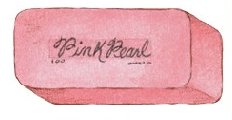Category: Education, Ideas, Online Learning, Peer Review, Post Feed
Tags: Education, Edward de Bono, Helen Teague, Ideas, Lateral Thinking, Peer Review, PMI, PNI

For generations, the academic community has relied on peer review as a way of enhancing the knowledge base and encouraging serious scholarship. Peer review can offer many of the same benefit to students… [and] computers [can] mediate the interaction among peers. Gehringer (2000)
· Peer Review reflects constructive guidance at its collaborative best.
· As an application to the classroom, Peer Review helps students and the teacher.
· Anonymous Peer Review provides a framework for students to learn balanced reasoning at a time when modern discourse often descends into shouting and insults (and that is just on CNN and MSNBC!)
· When using a thinking schema such as P*M*I, anonymous Peer Review teaches students how to offer points of help, practice proofreading, and strengthen other communication skills.
· Peer Review introduces and encourages diversity of opinion
· Peer Review models the importance of checking work before it is turned in. When the audience is the teacher alone, sadly, many students are apathetic. But when the audience is the students’ fellow classmates, an extra attention to detail emerges.
· Peer Review offers students a practical application in this real-world review.
The P*N*I Peer Review strategy (Teague, 2009) is adapted from deBono’s work and is customized for online learning spaces.
In the P*N*I adapted strategy, the original “M for Minus” component is altered to the letter “N” for Needs Attention. The Rationale for this change is that most Learners in online environments are learning alone and without the cues of group interaction. The words “Needs Attention” are softer and potentially less rigid that deBono’s original M for Minus.

Peer Review provides a review committee for the teacher who often has, to butcher Robert Frost, “miles to grade before she sleeps.”
If you would like more information on methods for Student Use, please refer to this link:
http://serc.carleton.edu/introgeo/peerreview/studentintro.html
For forms to use with students, see this link: http://serc.carleton.edu/introgeo/peerreview/forms.html and http://www.scribd.com/doc/2205303/English-122-paper-one-peer-review
References
De Bono, E., & Zimbalist, E. (1970). Lateral thinking (pp. 1-32). Penguin.
Gehringer, E.F., 2000. Strategies and Mechanisms for Electronic Peer Review
Teague, H. (2009). Peer Review. 10-Rep Learning. Edublogs. https://4oops.edublogs.org/2009/07/06/peer-review/





